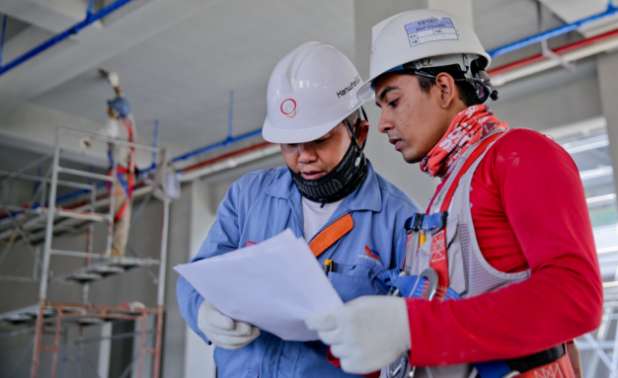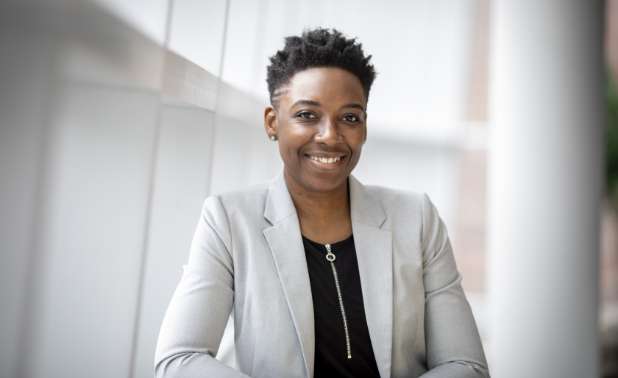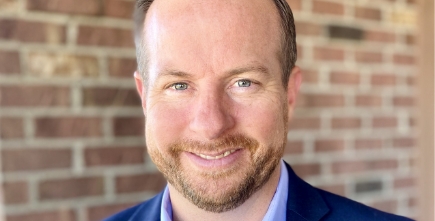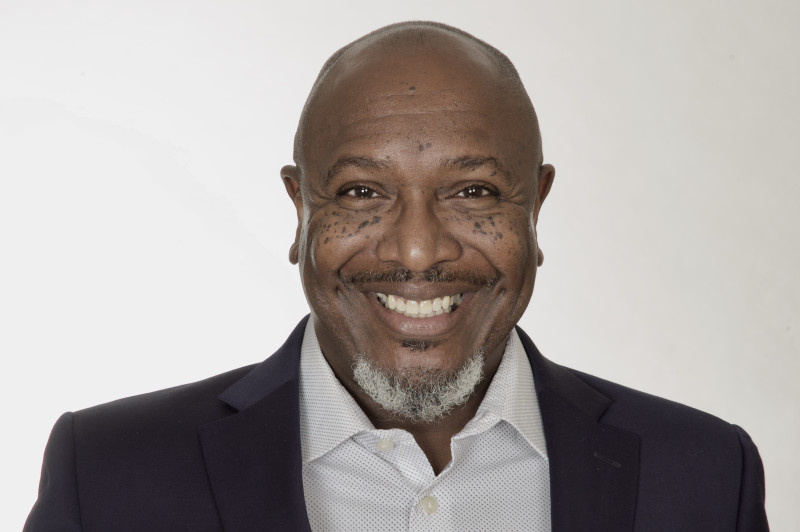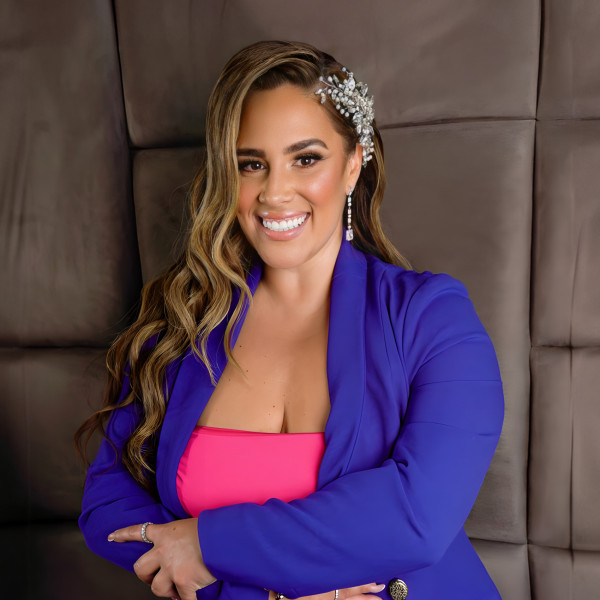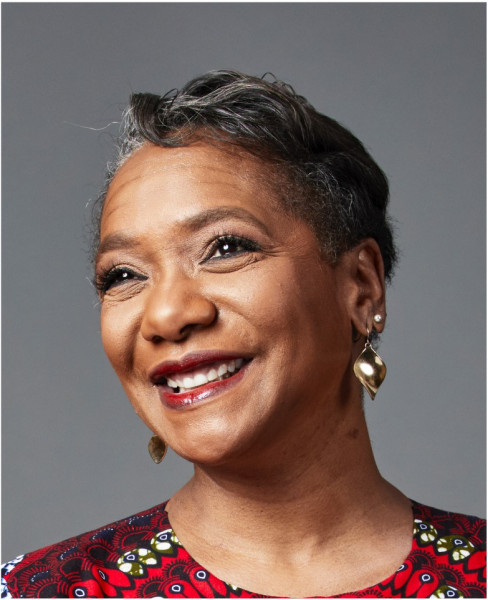Kamela Forbes:
Welcome to But First, People, a podcast brought to you by Pride Global. I’m your host, Kamela Forbes, the global head of diversity, equity, and inclusion here at Pride Global. Along with my colleagues, on this podcast, we’ll dive into everything from diversity, equity, and inclusion to service and staffing in the human capital industry and so much more. Join us as we sit down with industry experts to hear their stories.
Kamela Forbes:
Hello, and welcome to But First, People. On today’s episode, we have Kelly Newman with us. Kelly has over 22 years combined experience in management consulting, leadership training, business development, and education. He’s recognized for his excellent communication skills, and his capacity to relate to everyone. Kelly is a respected emotional-intelligence thought leader, with a passion to innovate and an aptitude for implementation. He has coordinated and led executives and management teams in a variety of global industries, including military contracts in Iraq, farming operations in Ethiopia, and a variety of domestic businesses. He leverages these experiences to go beyond the theory and provide application and depth to his consulting engagements and facilitation. Kelly, thanks so much for joining us today.
Kamela Forbes:
So Kelly, it’s really great to be able to reconnect with you again. I am so inspired by all of your teachings, and having had you as my coach, as I was getting trained in the emotional intelligence space, has been awesome. I know how steeped you are in this work, and I’m so excited for our listeners to be able to get to hear some of your expertise in this field. But before we start, we always kick off this But First, People podcast with a song.
Kelly Newman:
Okay, well, “want to sing,” that’s a little strong in that language, but I did pick a song here, Kamela. Thank you. And by the way, it’s awesome to connect with you again. But okay, yes, I’m going to do my very, very best rendition of “Man in the Mirror” by Michael Jackson, one of my favorites and heroes and big fan, and yet there’s no way I can do as well him. But yeah, that’s the one where we’ve been practicing in front of the family while they laugh at me. So okay, so go for it? Here we go.
Kelly Newman:
[Singing]
Kamela Forbes:
And it couldn’t have been a more perfect song. I mean, I think as we’re about to embark on this recording about emotional intelligence, I mean, it really is about looking at the man in the mirror, it’s about everybody taking that introspective approach to really evaluating themselves. And I think that’s obviously the big key about emotional intelligence, being able to understand who you are, and what you’re putting out into the universe, and what your behaviors look like. So great song choice for the conversation that we’re going to queue up. And so with that, I know that you’re an emotional intelligence and psychological safety expert, but how did you get into this line of work? And what do you think is your “why”? What drives your passion for this type of work?
Kelly Newman:
Well, thank you, Kamela. Yes, I absolutely do love this subject matter, the concepts here. I just think they absolutely have a critical place right now in the modern workforce. I feel like there’s never been a greater need or a better time for emotional intelligence and psychological safety than right now, as we reemerge from this pandemic. I actually joined the company BlueEQ, in starting this line of work, and it’s almost been seven years now, by attending a full-day workshop. And I was in consulting in different things, and I attended this workshop and just fell in love with the concepts, the way that it was taught, just the application. I felt like it had to be a better person, professionally, personally. And so I just, right then and there, in the workshop, I said, "I want to do this. I want to teach this, I want to get involved in this." And so I was that persistent, maybe even annoying person that goes, "Hey, I want to work for your company. And please let me."
Kelly Newman:
And it took at least a month to convince the CEO and the team to, "Hey, give this guy a chance, that we don’t even know much about." And that’s really changed my life, as I’ve been able to connect with people all over the globe. And two, three, sometimes four times a week, I get to connect with audiences virtually, in-person, talking and teaching and training on these subject matters. And I can just tell you that it definitely makes a difference. And so instead of maybe getting sick of it, like you might think, for example, our workshop, I’ve taught close to 700 times, and you might think, "Oh, you got to be sick." But it’s actually just the opposite—as you see the light bulb go on for people, as you see the change it makes. And just as people get excited about it, it fuels my passion as well to keep training, teaching, helping people. So the “why” is an easy part. It just makes a significant difference in our lives, professionally and personally. And so I just absolutely love what I do.
Kamela Forbes:
Yeah, I couldn’t agree with you more. I remember being in the first workshop that I attended that you taught and had the exact same feeling. I mean, I had a job at the time, so it wasn’t like I was like, "Okay, I want to come and work for the company," but it really did make me know that it was work that I wanted to be steeped in, and I wanted to be trained, and understand emotional intelligence, and be able to help translate that to other people in other companies, in the learning and development work I was doing at the time as well. And so going through the certification process to be able to carry on that work, and make that impact, to be able to see those “aha” moments, with individuals from different companies all across the globe, was really important to me too. So it totally resonates with me, what you said there. But just for our listeners, why don’t we start a little bit at the beginning, and can you define emotional intelligence and psychological safety for us? And what’s the connection between them?
Kelly Newman:
Emotional intelligence is sort of a complex idea, meaning there’s a lot to it. It’s hard to just throw in one sentence. But it definitely is about gaining and maintaining greater self-awareness. Are we comfortable looking in the mirror, you know, like the song was saying? And trying to figure out what are some things we might need to change and adjust. It’s about learning better self-control. There’s an internal side to the emotional intelligence, the self side. And then there’s this external side. And it’s also about awareness of other people, which might look like asking questions, it might be reading body language or facial expressions. It might be giving people the benefit of the doubt, awareness of other people, what they might be thinking or feeling, or trying to communicate to us. That’s a skill that we can develop, and we want to get good at. And this is a major part of emotional intelligence: we want to get good at being able to influence people. We’ve got to avoid the micromanaging and the manipulation—and can’t control people. And so learning to influence others is a major component of emotional intelligence.
Kelly Newman:
So a lot of components and just, kind of, parts. If I were to summarize it, it’s simply, maybe being more aware of ourselves and how we come off to other people, learning to control some of those attitudes and behaviors, and then being much more perceptive of other people so we can be more effective with them. And so that’s this idea of emotional intelligence. And maybe it’s helpful to give some examples. One common word in emotional intelligence, the word “empathy,” it’s a very foundational part of emotional intelligence. Can we see the world from other people’s perspectives? It would also include little things like optimism and learning better skills to be more optimistic, or some that may surprise people.
Kelly Newman:
Things like conflict management is a part of our emotional intelligence, as we learn to really manage conflict or manage relationships. We’ll talk about this a little later, but one that we see that lots of people aren’t so great at is stress tolerance. And especially in the pandemic, that’s taken a big hit. So there’s lots of elements here that comprise our emotional intelligence. And then you mention this term psychological safety, which is becoming a game-changer. I was just explaining, this idea of psychological safety, this is really a cool concept. And lots of research has come out in recent years of how important it is, in fact, how critical it is for the success of teams in the modern workplace. A simple definition might be, “A shared belief that it’s safe to discuss ideas, to experiment, to take interpersonal risks, to be vulnerable, to learn from mistakes, to be able to give and receive feedback.” You can see how this kind of environment that I just described is so important to success in the modern workplace. And the connection is really quite simple.
Kelly Newman:
An individual’s emotional intelligence is what creates this environment of psychological safety. So I’ll give you just a couple of examples. An individual who, say, is good at empathy, well, that creates a little safer environment for that team to operate or that leader to work with that individual or whatever, because they’re good at showing empathy. By contrast, think of if you’ve ever worked for somebody who struggles to show empathy, think of how that creates kind of an unsafe environment for you to work with. They don’t understand me, and they can’t identify with me. Well, that’s a problem. And so that’s just one element of emotional intelligence, that we can see when it’s high, it creates a safer environment, and when it’s not, it creates more of an unsafe environment. So definitely a strong connection. The emotional intelligence is more of the individual piece, and the psychological safety is more of the environment or the culture of the organization. And so there’s definitely a cause-and-effect relationship between the two.
Kamela Forbes:
Yeah, that’s pretty amazing. And like you’re saying, the results of knowing that a low emotional intelligence can make a workplace not psychologically safe, and the opposite is true for people with more higher levels of EQ. I know having been certified as a trainer under your tutelage, I’ve learned a lot about the “Four Quadrants of Psychological Safety.” And those specifically are “Learner Safety,” “Collaborator Safety,” “Challenger Safety,” and “Inclusion Safety.” But can you explain the difference between them to our listeners, and how they’re all essential to creating a psychologically safe environment?
Kelly Newman:
Well, sure. So what we’ve done at BlueEQ in our research is we’ve broken down the overall construct of psychological safety into these four quadrants that you just mentioned. It’s really helpful to get specific. Where are some areas maybe we’re doing well at, and some others that we may need to improve? So you mentioned Learner Safety. A couple aspects of Learner Safety are things like, just feeling safe to ask questions. Learning from mistakes is a big part of Learner Safety.
Kelly Newman:
Collaborator Safety, well, my favorite part about Collaborator Safety is being able to have constructive debate with each other. I like to call it “healthy conflict.” We need that on a team, we need to be able to have passionate, strong opinions and discuss them openly with each other, and stay in this psychologically safe environment. There’s definitely ways to do that. And it works really well.
Kelly Newman:
Now, one of the lowest we see in organizations is this idea of Challenger Safety. Do people really feel safe to challenge the status quo? Most people don’t. There’s a lot of research out there, in our research, in our assessments, as typically the lowest score. We can do better there.
Kelly Newman:
And then finally, perhaps the most important of the four, Inclusion Safety. Do people know they’re valued, treated fairly? Do their experience and ideas matter? To be included on a team should be a right. And it’s something that every person should feel. And it’s a big part of this overall psychological safety, is to have Inclusion Safety.
Kamela Forbes:
And it’s so important how all of those work together, in a whole diversity and inclusion structure, to be able to know that there’s a safe space for you to be able to work with your colleagues; to challenge them, if you feel differently; to share your opinions; to bring your differences and your experience and your thoughts to a process; to learn from others at the same time; and all of those put together, just to be able to make you feel like you’re included, like your voice is heard, that you’re valued, your opinions and your thoughts are valued. And so I think it’s so important that they all come together, but that they all individually have aspects that people could work on. I know that a lot of companies now are focused on that. And as we’re starting to emerge from the pandemic, companies are rightly starting to make employee wellbeing a focus—but can you tell us a little bit about what you see is some of the undeniable connections between employee wellbeing and creating this psychologically safe environment as well?
Kelly Newman:
Kamela, you’re absolutely right. Wellbeing of employees, perhaps for the first time ever, is becoming number one on many organizations’ priority list. We’ve got to take care of our employees. And having a psychologically safe environment is definitely one of the most important factors because things like anxiety and stress and depression—and those things drop if we have a safe environment to work in. Think of the effect that the old style of leadership has on people, when it’s led by fear, and authoritative, and demanding, and so forth. And maybe emailing you early in the morning or late at night, expecting you to respond. And those kinds of tactics, they’re just so last century—don’t work very well, they take a huge toll on people’s wellbeing. And so using our emotional intelligence to create these safer environments are a critical component to employee wellbeing. We’re safer because we’re happier, we’re healthier, we’re able to be ourselves to some degree, to openly be candid with each other. And so there’s a direct connection between the two.
Kamela Forbes:
And I think what’s important too, like you’re saying, as leaders, one of the things that I learned and have taken away from the course and my training, is about consistency. I know in the course you teach about the “red-zone” and the “blue-zone” behaviors, and how they’re crucial in creating psychologically safe environments. Can you tell us a little bit about the differences between those two zones?
Kelly Newman:
Yeah, so we kind of use some lingo to help us understand. When a psychological safety’s low we call it a “red zone,” and when it’s high, we called it a “blue zone.” And it’s really easy to tell the difference between the two. In a red zone, we’ve got leaders who are leading with fear, they’re maybe condescending, maybe they’re not transparent, they’re arrogant, they’re micromanaging. And there’s so many of these red zone type behaviors that create an unsafe environment. But in a blue zone, it’s much different. We’ve got more of a collaborative leader, an inclusive leader, one who’s open and transparent, one who’s there to empower employees, to help them become their best selves. And one of my favorites, they’re very approachable. We need leaders that are approachable so we feel comfortable and safe to ask questions, and challenge, and learn and so forth. And so it’s really quite easy to look at the two red and blue zones and see the huge difference, and realize, wow, blue zone is far better. That’s the environment we all want to work in.
Kamela Forbes:
And that would be great if, yeah, we all had leaders who were blue zone, but the reality is that probably isn’t the case. Like you say, when you talk about stress tolerance, and depending on what’s going on in anybody’s life on any given day, they may show up as red one day and they may show up as blue. How is that for creating psychological safety? When one day your direct report’s not really sure which version of you they’re going to get that day, whether it’s the blue version or the red version. So what is it that people could do to maybe to try to be consistent in their approach, to the way that they show up?
Kelly Newman:
Well, Kamela, one day, you’re going to come visit me, okay? And let me explain what’s going to happen. You’re going to knock on my door and my dog is going to be right there to greet you, okay? And she’s a great dog, and I’m going to be telling you, "Hey, this is a wonderful dog, everybody loves her dog. She’s awesome, she’s wonderful. She only bites every once in a while." I mean, how do you feel when I say that to you? Are you comfortable being in my home knowing that my dog, every once in a while, might turn and bite? Obviously, that doesn’t work. We can’t have a pet that does that; that’s a good way to get sued or lose a lot of friends. And yet leadership works the same way.
Kelly Newman:
We need to be consistently striving for blue zone. We can’t think that, “Hey, I can be blue zone most of the time, but to motivate people, I need to just rip a few heads off or be condescending. Maybe I play the shaming game to get them to do better, the guilt trip, or maybe I call out a mistake in front of everybody so nobody else makes that mistake. Every once in a while, I’ll just go a little bit red. That’ll show everybody who the boss is. But most the time I’m blue, and that’s just the way that I lead." Well, actually you’re destroying trust, and people don’t know how to act around you all the time, and so they’re going to be very guarded. We need to be consistently striving to build trust and establish the kind of environment where people can really be empowered to be themselves. And so don’t fall into that old-school style of leadership of the “dog that bites” once in a while. It just doesn’t work.
Kamela Forbes:
Yeah. Because Kelly, I surely won’t be coming to visit—if I’m not sure if today’s going to be a good day for the dog or the bad day, I don’t want to come and visit. So imagine, employees showing up to work and having to try to figure that out, that already is creating just more stress for them to try to figure out, "What’s my boss going to be like today? What do I need to do to prepare for whatever mood they’re going to be in?" And that’s something people definitely don’t need as it relates to their own wellbeing. This is such important work that you do. And the training and the workshops you all deliver, they’re so impactful. And like you say, it’s getting to watch people have that “aha” moment. These are life-changing moments. Not only for an individual, but collectively for the organization as well. And when it’s all said and done, I know how it must feel to know that you had that impact on so many people. But what do you want your legacy to be?
Kelly Newman:
Well, powerful question there for sure, Kamela. I definitely—since a student in high school, literally, I remember being in the 10th grade—I decided I wanted to be an influence for good and helping people improve their lives, in many different aspects. But I just had a passion and for that, and that’s one reason I absolutely love what I do now, is just being—even if it’s just a small part of somebody’s life being better, that—Kamela, as you know, my wife and I have 12 children, 8 of them are adopted, and to be able to help people improve their lives—I’ve taught them all about emotional intelligence and psychological safety. And so whatever it is, your professional career to being a parent, a friend or a neighbor, these concepts are absolutely critical.
Kelly Newman:
And if we can all take a little bit better look in the mirror and make a change, do something that might help, it has an effect. It has an effect on everybody we interact with, and our world would certainly be a much better place if all of us would take a little more look in the mirror, inside something we could do to improve and change. And these are so foundational, these concepts of emotional intelligence and psychological safety, to that change that we all need to make.
Kamela Forbes:
Man, I thank you. I can’t thank you enough for being a part of that change—because I know one person at a time, one organization at a time, the impact that you’re making, the education that you’re giving, the resources and tips for people to be introspective, and to be able to work on those things to improve their own personal emotional intelligence—that of their organization, that of their industry, and that of their world—are going to take us a long way. Regardless of what industry you’re in, it’s everybody’s job to hold themselves accountable for making that change. And so thank you for all that you do, thank you for sharing your tips and advice with us today.
Kelly Newman:
Thanks, Kamela.
Kamela Forbes:
Thanks so much for joining us today, Kelly. Chatting with you has been a real pleasure. And of course, thanks to you, our viewers, for spending some time listening to us today. To learn more about Pride Global, please check out our website at prideglobal.com. If you have any questions for either Kelly or myself, please feel free to email us at butfirstpeople@prideglobal.com. And of course, don’t forget to like, share, rate and subscribe to our podcast. Thanks again, and we hope you tune in real soon.




